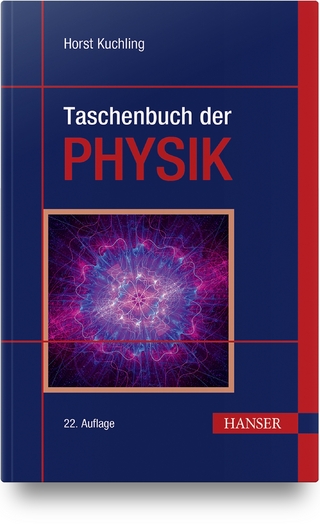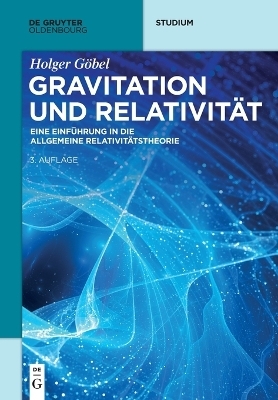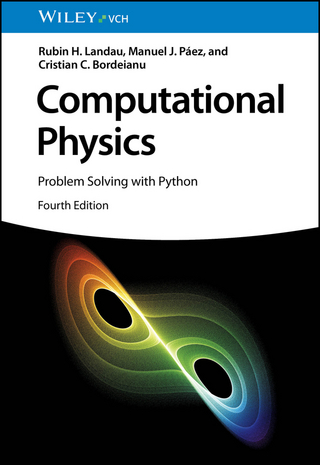
Economics of Sustainable Energy
Wiley-Scrivener (Verlag)
978-1-119-52592-9 (ISBN)
Every year, as soon as reports on global economic inequality remind us about the direction our civilization is heading, there is a hysterical reaction, but hysteria dies down within weeks and we go back to the lifestyle that brought us here today. Often the blame is laid on the Millennial generation for their "apathy," "lust for comfort," and "bratty" attitude. Yet, business insider surveys indicate it's the same Millennial generation that overwhelmingly cares for the state of the world and the direction in which our civilization is heading. Nearly 50% of them ranked climate change and destruction of nature as their primary concern. This is followed by concern for war and global conflict, and then global economic inequality. The vast majority of those surveyed are willing and eager to make lifestyle changes. This book breaks open the hypocrisy of our civilization and stops the blame game in its tracks and identifies the root causes of today's world economy, ecology, and global politics.
The book demonstrates that changes in lifestyle are necessary but not sufficient. No economic policy or technology development mode has a chance to survive, let alone thrive unless supported by the political establishment. In this process, the government plays a pivotal role. The challenge is to change the attitude of the government from a 'self-serving' controlling mode to a representative philanthropic mode. This new system of economic development and political governance is inspired by a long-forgotten understanding of political economics: medieval Islamic economics. In reviewing the history of economics from trade, currencies, and interest, the strengths and weaknesses of various economic developments over our centuries are evaluated. Based on the historical analysis, a step by step procedure is outlined for this fundamental change in our society today. As a whole, this book is the first in the modern era to offer such a comprehensive analysis, complete with solutions to the entire crisis of today's civilization.
Jaan S. Islam is a research associate at Emertec Research and Development Ltd. and graduate student and SSHRC scholar at the University of British Columbia. He has written several books and articles in the field of political science and economics, focusing on the economics of energy and sustainability. M. R. Islam, Ph.D. is the President of Emertec Research and Development Ltd. and an adjunct Professor at Dalhousie University, where he was Canada's first Killam Chair in petroleum engineering during 2000-2005. One of the world's most well-known engineers spearheading the push towards sustainability in energy engineering, he has written dozens of books, hundreds of journal articles, and is known as one of the most prolific and well-respected petroleum engineers in the world. In the 30+ years of his professional career, Professor Islam has held faculty positions with seven different universities and supervised over 150 research students and post-doctoral fellows, and he has been and continues to be on the editorial boards of a number of scientific journals. Meltem Islam is a research associate with Emertec Research and Development Ltd. She received a BSc in Econometrics and an additional degree in Insurance as well as Masters in Education (Mount St. Vincent University, Canada). M.A.H. Mughal is a prominent philanthropist, author, speaker, mentor and a business consultant in the areas of strategy, innovation and sustainability. As a senior executive in the banking & finance industry, he has designed and led transformation programs. He has served on the Board of Directors of various companies including Emertec.
Preface
1 Introduction 1
1.1 Opening Remarks 1
1.2 Research Questions Asked 4
1.2.1 What is the Natural State of an Economy? 4
1.2.2 What is the Current State of Economy? 6
1.2.3 What are the Reasons Behind the Current State of Economy? 7
1.2.4 What is the Current State of Technology Development? 7
1.2.5 What is the Current Status of Energy Management? 8
1.2.6 Are Natural Resources Finite and Human Needs Infinite? 8
1.2.7 How Would a Model Economic System Look Like? 9
1.2.8 Is Sustainable Petroleum Technology Possible? 10
1.2.9 What Role the Government Should Play 10
2 Delinearized History of Economics and Energy 13
2.1 Introduction 13
2.2 The European Tract of Economics History 14
2.3 Transition of Money 39
2.4 The Nature Science Tract of Economics History 49
2.5 Connection to Energy 63
3 The Incompatibility of Conventional Economic Analysis Tools with Sustainability Models 69
3.1 Introduction 69
3.2 Current Economic State of the World 74
3.2.1 Economic Extremism 75
3.2.2 Paradoxical Economy in the Era of Artificial 83
3.3 The Status of the Money God 94
3.4 The Current Economic Models 97
3.4.1 Conflation Between External Beauty and Truth 99
3.4.2 Misplaced ‘Faith’ in Aphenomenal Theories 100
3.4.3 The Antithesis of Prophecy of the Doom 107
3.5 The Illogicality of Current Theories 110
3.6 The Delinearized History of Modern Economics 111
3.6.1 The Source of the Economics Track 123
3.6.2 Most Influential Economists of Modern Era 127
3.6.2.1 Adam Smith (1723–1790) 128
3.6.2.2 Karl Marx (1818–1883) 128
3.6.2.3 John Maynard Keynes 1883–1946 128
3.6.2.4 Alfred Marshall 1842–1924 (by Pareto, Jevons, Bentham) 129
3.6.2.5 Milton Friedman 1912–2006 (influenced by Alfred Marshal) 132
3.6.2.6 Jan Tinbergen 1903–1994 133
3.6.2.7 John Forbes Nash, Jr. 1928–Present 133
3.6.2.8 Muhammad Yunus 1940–Present 136
3.6.2.9 Warren Buffett 1930–Present 142
3.6.2.10 Joseph Stiglitz (influenced by Keynes) 142
3.6.2.11 Paul Robin Krugman (influenced by Keynes, Stiglitz) 142
3.6.3 The Role of Government 147
3.7 The Transition of Robotization 153
3.7.1 The Cause of the Great Depression: Inequality and Deregulation 167
3.8 Yellow Gold vs. Black Gold 171
3.9 How Science and Economics Mimic the Same Aphenomenality 175
3.9.1 Sources of Unsustainability 176
Notes 177
4 State-of-the Art of Current Technology Development 179
4.1 Introduction 179
4.2 Denaturing for a Profit 182
4.3 Aphenomenal Theories of the Modern Era 186
4.3.1 Conservation of Mass and Energy 186
4.3.2 Other Theories and ‘Laws’ 189
4.3.3 The Consequences 195
4.4 The Sugar Culture and Beyond 198
4.5 The Culture of the Artificial Sweetener 203
4.6 Delinearized History of Saccharin® and the Money Trail 211
4.7 The Culture of Aspartame 219
4.7.1 Delinearized History of Aspartame 221
4.7.2 Timeline 223
4.7.3.1 Phenylalanine 238
4.7.3.2 Aspartic Acid 239
4.7.3.3 Methanol 240
4.7.3.4 DKP 242
4.8 The Honey-Sugar-Saccharin-Aspartame Degradation in Everything 243
4.9 Assessing the Overall Performance of a Process 248
4.9.1 The Process of Standardization 251
4.9.2 Natural Ranking Process 253
4.9.3 A New Approach to Economic Analysis 258
5 Comprehensive Analysis of Energy Sustainability 263
5.1 Introduction 263
5.2 Sustainability in the Information Age and Environmental Insult 265
5.2.1 Agriculture and Development 267
5.2.2 Desertification 267
5.2.3 Ecosystem Change 267
5.2.4 Fisheries 268
5.2.5 Deforestation 268
5.2.6 Marine Litter 269
5.2.7 Water Resources 270
5.2.8 Petroleum Resources 273
5.3 Climate Change Hysteria 279
5.4 The Energy Crisis 283
5.4.1 Are Natural Resources Finite and Human Needs Infinite? 284
5.4.2 The Peak Oil Theory and its Connections to Population and Lifestyle 287
5.4.3 Evidence in Favor of the Peak Oil Theory 299
5.4.4 Historical Background: Foundations of Peak Oil Theory 303
5.4.5 Deconstruction of Peak Oil Theory 307
5.4.5.1 Background of the Petroleum Industry 307
5.4.5.2 Equity Shoulders Debt 310
5.4.6 The Finite/ Infinite Conundrum 311
5.4.6.1 Renewable vs Non-Renewable: No Boundary-As-Such 312
5.5 Petroleum in the Big Picture 315
5.5.1 Unconventional Oil and Gas Resources 322
5.5.2 Gas Hydrates 326
5.6 Science of Healthy Energy and Mass 329
5.6.1 Role of Water, Air, Clay and Fire in Scientific Characterization 330
6 The Islamic Track of Economical Analysis 357
6.1 Introduction 357
6.2 Function of Gold Dinars and a New Paradigm for Economic Analyses 359
6.2.1 The Standard Weight of the Islamic Gold Dinar 361
6.2.2 Inscriptions on the Islamic Gold Dinar 362
6.3 Labor Theory of Value 363
6.3.1 Competing Interests of Employer and Employee 373
6.3.2 Demand, Supply, Price and Profit 376
6.3.2.1 Demand 376
6.3.2.2 Supply Theory 378
6.3.2.3 Profit 379
6.3.2.4 Price 380
6.4 Zero Waste Economy 382
6.5 Role of Government in State’s Economy 386
6.6 Macroeconomy and Theory on Money 393
6.6.1 Zero-Interest Economy 395
6.6.2 Explanations and Theories 398
6.7 The Optimum Lifestyle 403
6.7.1 Static and Dynamic Intention 406
6.7.2 Role of Intention in Natural Economy 410
6.8 The Gold Standard for Sustainable Economy 411
7 Framework of Economics of Sustainable Energy 415
7.1 Introduction 415
7.2 Delinearized History of Modern Age 416
7.2.1 The Honey-Sugar-Saccharin-Aspartame Degradation in Everything 421
7.2.2 What is the Most Insidious Disinformation? 427
7.2.2.1 Global Energy ‘Crunch’: The Disinformation Campaign 428
7.2.3 HSS®A® Pathway in Economic Investment Projects 431
7.3 Petroleum Refining and Conventional Catalysts 434
7.3.1 Catalytic Cracking 436
7.3.2 Isomerisation 437
7.3.3 Reforming 438
7.4 The New Synthesis 439
7.5 The New Investment Model, Conforming to the Information Age 445
7.5.1 Ignorance-Based Energy Pricing 448
7.5.2 Turning Ignorance-Based into Knowledge-Based 451
7.5.3 What is So Special about Canadian Energy Pricing 454
7.5.4 What is Really the Driver of the Energy Pricing? 458
7.5.5 Corruption is Happiness? The Two Extrema. 459
7.5.5.1 Civilization for Whom? 459
7.5.5.2 Root of the Technological Disaster 461
7.5.5.3 How Does the Top-Down Model Invade ‘Civilization’? 464
7.5.5.4 Other “Problems” Said to “Plague” Third World Countries 466
8 Economics of Sustainable Energy Operations 471
8.1 Introduction 471
8.2 Issues in Petroleum Operations 472
8.2.1 Pathway Analysis of Crude and Refined Oil and Gas 473
8.2.1.1 Pathways of Crude Oil Formation 473
8.2.1.2 Pathways of Oil Refining 474
8.2.1.3 Pathways of Gas Processing 478
8.3 Critical Evaluation of Current Petroleum Practices 482
8.3.1 Management 483
8.3.2 Current Practices in Exploration, Drilling and Production 485
8.3.3 Challenges in Waste Management 488
8.3.4 Problems in Transportation Operations 489
8.4 Greening of Petroleum Operations 490
8.4.1 Effective Separation of Solid from Liquid
8.4.2 Effective Separation of Liquid from Liquid 491
8.4.3 Effective Separation of Gas from Gas 491
8.4.4 Natural Substitutes for Gas Processing Chemicals (Glycol and Amines) 492
8.4.5 Membranes and Absorbents 493
8.4.6 A Novel Desalination Technique 496
8.4.7 A Novel Refining Technique 497
8.4.8 Use of Solid Acid Catalyst for Alkylation 497
8.4.9 Use of Bacteria to Breakdown Heavier Hydrocarbons to Lighter Ones 498
8.4.10 Use of Cleaner Crude Oil 498
8.4.11 Use of Gravity Separation Systems 500
8.5 Zero-Waste Operations 501
8.5.1 Zero Emissions (Air, Soil, Water, Solid Waste, Hazardous Waste) 501
8.5.2 Zero Waste of Resources (Energy, Material, and Human) 502
8.5.3 Zero Waste in Administration Activities 502
8.5.4 Zero Use of Toxics (Processes and Products) 502
8.5.5 Zero Waste in Product Life Cycle (Transportation, Use, and End-of-Life) 503
8.6 Characteristic Time 504
8.6.1 Organic and Mechanical Frequencies 508
8.7 Quality of Energy 509
8.7.1 Natural Energy vs. Artificial Energy 514
8.7.2 From Natural Energy to Natural Mass 518
8.7.3 Scientific Ranking of Petroleum 534
8.7.4 The Petroleum Energy Picture 545
8.7.5 Reserve Growth Potential 549
9 Role of Government in Assuring Energy Sustainability 555
9.1 Introduction 555
9.2 The U.S. Government 556
9.3 The Wealth Paradigm 561
9.3.1 Population and Gold 566
9.3.1.1 The Post-Colonial War Model and Hierarchy Under Fiat Currencies 571
9.4 Zero Interest 575
9.5 Zero-Waste Economics 581
9.5.1 Global Economics 583
9.5.1.1 Environmental and Ecological Impact 585
9.5.1.2 Quality of Energy 585
9.5.1.3 Evaluation of Process 586
10 Summary and Conclusions 589
10.1 Summary 589
10.1.1 Methodology & Life Cycle of Moving in HSSAN Model 590
10.2 Answers to the Research Questions 591
10.2.1 What is the Natural State of Economy? 591
10.2.2 What is the Current State of Economy? 592
10.2.3 What are the Reasons Behind the Current State of Economy? 594
10.2.4 What is the Current State of Technology Development? 595
10.2.5 What is the Current Status of Energy Management? 596
10.2.6 Are Natural Resources Finite and Human Needs Infinite? 597
10.2.7 How Would a Model Economic System Look Like? 597
10.2.8 Is Sustainable Petroleum Technology Possible? 598
10.2.9 What Role the Government Should Play 599
11 References and Bibliography 601
Index 621
| Erscheinungsdatum | 05.10.2018 |
|---|---|
| Sprache | englisch |
| Maße | 10 x 10 mm |
| Gewicht | 454 g |
| Themenwelt | Naturwissenschaften ► Physik / Astronomie |
| Wirtschaft ► Volkswirtschaftslehre | |
| ISBN-10 | 1-119-52592-6 / 1119525926 |
| ISBN-13 | 978-1-119-52592-9 / 9781119525929 |
| Zustand | Neuware |
| Haben Sie eine Frage zum Produkt? |
aus dem Bereich


